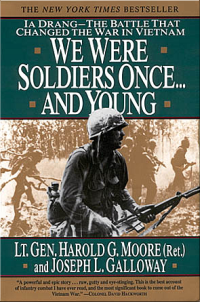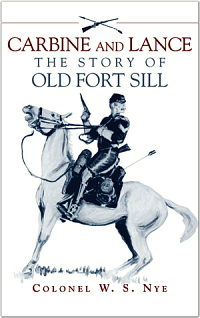§ DRAFT §
III. Government
§ 1. Origins of Governments.
A government presides over a nation of individuals. Human physiology requires a society in which children may be raised to maturity, food and shelter acquired for the weaker members, and a common defense provided for those rigors against which a human individual cannot survive alone. No such society can exist without rules and mores to guide the behavior and the division of labors which ensure the survival of that group. Easily observable is that children learn these rules and mores from the individuals who care for them, and only after tender years from others. And still later from conscious reasoning.

A study of history tells us that families comprise the smallest unit of government, followed by the extended family, or clan. A group of clans form a tribe, all linked by family relationships and the larger arbitrates somewhat the disagreements between the smaller. The family settles disputes between siblings—the failure to do so breaks up the family. Likewise the clan moderates between families to keep the clan together and the tribe, the clans.
Tribes may constitute a nation, or, oftentimes, a nation my include a collection of tribes. Nations can only be held by common bonds, be it familial relationships, a common language and common customs, or a common need against a common enemy. No nation may be held together for long by force alone. As Lincoln observed in his “House Divided” speech, no nation can survive being part one thing and part the opposite. The theory that a nation can survive a “separate but equal” division is an illusion which can only cause unending conflict.
§ 2. The Government of the United States.
The founding fathers envisioned that all governments owe their very existence to the consent of the individuals of that nation, and, as such, have only those rights and responsibilities that the citizens can give them. Since all citizens under that theory have equal rights and responsibilities, no citizen nor group of citizens can give that government any rights greater than that which each individual possesses. And as follows, no citizen nor group of citizens can give the government the authority to deprive another individual of those rights. Only an individual, as an individual, can surrender his rights, either by consent or by assault on the rights of others.
§ 3. Responsibilities of the Government of the United States.

William Blackstone
Blackstone observes that “… every man, when he enters into society, gives up a part of his natural liberty, …” ; this because an individual living apart from society may, and in some cases must, act only as need and inclination strikes with no regard for anyone or anything else.
A government of free individuals cannot interfere with any single individual other than to carry out the responsibilities given it by the citizens. The founding fathers, in the Constitution of the United States, limited those responsibilities to the few they thought necessary to secure these freedoms and to narrowly restrict the rights of the federal government to those few needed to carry out those responsibilites. The rest were restricted to the states and to the individual. These responsibilities were stated in the Constitution’s preamble:
We the people of the United States, in order to form a more perfect union, establish justice, insure domestic tranquility, provide for the common defense, promote the general welfare, and secure the blessings of liberty to ourselves and our posterity, do ordain and establish this Constitution for the United States of America.
§ 4. Rights of the Government of the United States.
The founders of this nation deliberately limited the rights held by the federal government. They were quite aware that the greedy and power-hungry would always attempt to preempt the government—to turn laws against the individuals of the United States or against the individual states for their own profit. The founder’s writings make it clear that they knew they could not protect individual rights against all threats, but they implemented the strongest checks against such destructive undertakings as possible.
The founding fathers divided the federal government into three branches, careful not to give any single branch complete power over, nor unlimited freedom from, the other. They further separated the legislative branch into two opposing divisions—to set them against each other so that no faction could easily take control of the power to make law toward its own ends.
The founders enumerated the powers given to the federal government in Article I, Section 8, of the Constitution.
- The Congress shall have Power To lay and collect Taxes, Duties, Imposts and Excises, to pay the Debts and provide for the common Defence and general Welfare of the United States; but all Duties, Imposts and Excises shall be uniform throughout the United States;
- To borrow Money on the credit of the United States;
- To regulate Commerce with foreign Nations, and among the several States, and with the Indian Tribes;
- To establish an uniform Rule of Naturalization, and uniform Laws on the subject of Bankruptcies throughout the United States;
- To coin Money, regulate the Value thereof, and of foreign Coin, and fix the Standard of Weights and Measures;
- To provide for the Punishment of counterfeiting the Securities and current Coin of the United States;
- To establish Post Offices and post Roads;
- To promote the Progress of Science and useful Arts, by securing for limited Times to Authors and Inventors the exclusive Right to their respective Writings and Discoveries;
- To constitute Tribunals inferior to the supreme Court;
- To define and punish Piracies and Felonies committed on the high Seas, and Offences against the Law of Nations;
- To declare War, grant Letters of Marque and Reprisal, and make Rules concerning Captures on Land and Water;
- To raise and support Armies, but no Appropriation of Money to that Use shall be for a longer Term than two Years;
- To provide and maintain a Navy;
- To make Rules for the Government and Regulation of the land and naval Forces;
- To provide for calling forth the Militia to execute the Laws of the Union, suppress Insurrections and repel Invasions;
- To provide for organizing, arming, and disciplining, the Militia, and for governing such Part of them as may be employed in the Service of the United States, reserving to the States respectively, the Appointment of the Officers, and the Authority of training the Militia according to the discipline prescribed by Congress;
- To exercise exclusive Legislation in all Cases whatsoever, over such District (not exceeding ten Miles square) as may, by Cession of particular States, and the Acceptance of Congress, become the Seat of the Government of the United States, and to exercise like Authority over all Places purchased by the Consent of the Legislature of the State in which the Same shall be, for the Erection of Forts, Magazines, Arsenals, dock-Yards, and other needful Buildings; — And
- To make all Laws which shall be necessary and proper for carrying into Execution the foregoing Powers, and all other Powers vested by this Constitution in the Government of the United States, or in any Department or Officer thereof.

Additionally, the founders added a Bill of Rights to the constitution to ensure the federal government never exceeded these powers. The Tenth Amendment makes clear that the federal government’s rights are severely limited and not to be construed beyond those enumerated.
Finally, to that extreme end, the founders demanded that the power of the citizens to check the government by force, if necessary, never be taken from them—the Second Amendment—the right to keep and bear arms.



















Leave a comment